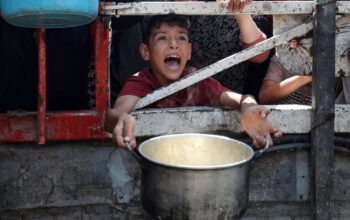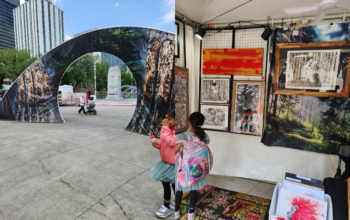Opinion
The power of silence is an underrated practice. Ironically, much weight is placed on decorative words, which seldom produce results. Justin Trudeau missed the whole point. His decade-long experience as prime minister, that initially branded him as a world leader, and subsequently transitioning into a “fair politician,” came to an end with his abrupt resignation. Resignations, if necessary, need timing—and clearly, this was not the right time. As much as he calls himself a fighter, the resignation offered yesterday, alas, paints a picture of surrender without a fight, leaving a fragmented party behind.
There are things that Trudeau did right, but then he went wrong—atrociously wrong. Trudeau was applauded for inviting around 40,000 Syrian refugees to Canada. This move gave him a humane face. Then followed the reluctant acceptance of Afghan and Ukrainian refugees in the country. Despite glitches in their immigration process and growing opposition, Trudeau continued to build his image as a humanitarian leader.
Then came the pandemic. When COVID struck, Canada’s economy came to a standstill, and Trudeau promptly released money into the market through the generous COVID Emergency Benefit Program (CERB) and Canada Recovery Benefit Program (CRB). The move got him winning 2021 election forming his second minority government. What he failed to implement was a plan for recovery—recovery of the economy and jobs. Leaving the task of reviving the economy with the CRA’s (Canada Revenue Agency) collecting agency, that shifted gears from being generous to authoritarian, wasn’t a clear strategy for regaining what was lost. The motivation to creating employment and the willingness to work in employment had vanished.
In fairness, Trudeau’s commitment to combating climate change was outstanding, and his dedication to the Paris Agreement, targeting an emission reduction of 40% to 45% (below 2005 levels) by 2030, was ambitious. However, capping emissions, and in turn production, without bringing the industry into an agreement—particularly those in Alberta that heavily relied on oil and gas sectors—undermined his image as a progressive leader. On the other hand, Danielle Smith, championing business interests, appealed to Canadians struggling to find a living. Even a little more than Trudeau’s ambitious $10-a-day childcare program.
Healthcare was another example of how Trudeau lost touch with grassroots Canada. The sector, which is primarily under provincial jurisdiction, blamed the federal government for its incompetence. The two-hour wait for an ambulance in rural Alberta helped push Danielle Smith back into power while pushing Trudeau under scrutiny. The blame for failing to strategize healthcare to accommodate the newly added population fell squarely on his shoulders. The pharmacare program, offering free medications for diabetes and contraceptives, also lacked luster. People needed jobs, security, and the ability to achieve success. Pumping money into the economy without a clear strategy wasn’t enough. Trudeau needed to listen to the people.
Trudeau’s interaction with an Algoma Steel worker four months ago is a case in point. Here was a raw opportunity to grasp the challenges faced by regular Canadians, but Trudeau instead began unboxing his government’s policies in response. Did he expect the worker to comprehend them all in their five-minute interaction? Apparently, he didn’t. What was expected from Trudeau was empathy and care; salesmanship could have been saved for a later date and better audience. Trudeau chose to speak, and the unforgiving cameras captured it all. The man working at the steel company became a poster boy for the Tories.
Another instance where Trudeau could have remained silent was when the RCMP (Royal Canadian Mounted Police) accused the Indian government of planning extrajudicial killings in Canada. As prime minister of a country that accommodates nearly 2 million Indians, many of whom support Indian Prime Minister Narendra Modi, Trudeau could have handled this complexity with more diligence. Modi, a shrewd taskmaster when dealing with allegations, knew the art of getting things done without being the focus of interrogating cameras. Trudeau’s intervention was unnecessary. The RCMP, in partnership with Global Affairs Canada, had the capability to handle the task. Choosing a strategy with its ally, the U.S., sailing in the same boat, could have been an option. Decididing to handle this intricacy personally was not wise for a prime minister’s stature.
Ironically, in instances that needed a leader to speak, Trudeau muted himself. His response to the ever-growing global voices about the genocidal attacks by Israel on Palestine was pathetic. No arms deal or ally relationship can ever justify silence in the face of mass murder of children and civilians—silence here was complicity, a tag that will stay with him forever. Some Liberals pushed him to speak, like the reasonable-thinking Canadians, but Trudeau remained silent.
In doing so, he missed the whole point of being a humanitarian leader when the task of halting crimes against humanity fell on his shoulders. Trudeau failed the Canadians who stood by him through his ups and downs. He failed miserably.
Like Kamala Harris, who was parachuted into the U.S. elections to make up for Joe Biden’s shortcomings, the scattered Liberal party will find its leader. But Trudeau’s downfall as a world leader, and more so as the torchbearer of humanity, will always be remembered. Here’s hoping he rises again!


